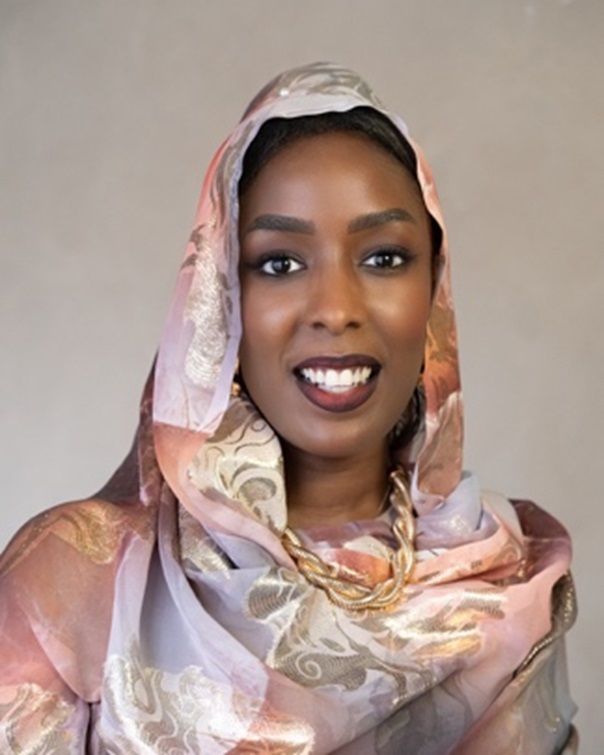The HRDA Alumni Network
The Network of Alumni of The Master’s Programme in Human Rights and Democratisation in Africa.
A Brief Intro
The Alumni Association of the Centre for Human Rights at the University of Pretoria was established in 2009 to foster ongoing connections among graduates and with the Centre itself. Born from discussions during the 10th anniversary celebrations of the LLM programme in Human Rights and Democratisation in Africa, the Association aims to maintain a vibrant network of human rights professionals across the continent. Its primary purpose is to keep connections between alumni and the Centre alive, manage alumni affairs, and facilitate engagement of graduates in teaching, visiting lectures, and projects.
The Association actively encourages alumni participation in academic publishing, provides capacity building opportunities, and promotes human rights advocacy by engaging graduates in critical conversations about issues affecting Africa. Since its formal establishment with an interim coordinator in 2010 and its first dedicated coordinator in 2011, the Association has grown into a vital platform supporting the Centre’s extended community of human rights practitioners.
Association Activities
The HRDA Alumni Association’s 2025 plan focuses on two key strategic activities designed to strengthen the alumni community’s engagement and impact in human rights work across Africa.
The first initiative is a Professional Development programme centered on Blog Writing Training. This structured virtual training will enhance alumni’s ability to effectively communicate human rights issues through digital media.
The second initiative is a Knowledge Exchange programme featuring an “Alumni Conversations” Webinar Series. This project will consist of two webinars addressing pressing human rights issues in Africa with a broader regional dimension through 90-minute panel discussions with 3-4 alumni speakers per session from Africa and other GC alumni from different regions.
The third initiative is a book project by the 2024 Alumni cohort. This collaborative publication will feature multiple contributions from alumni representing diverse countries across Africa, with each chapter reflecting key topics from their HRDA learning modules. The book aims to showcase the practical application of human rights principles in different national contexts while highlighting the analytical perspectives developed during their studies.
The Alumni Task Force on Climate Justice and Rights of Future Generations is a strategic initiative designed to address urgent environmental concerns through a human rights framework. This project leverages the diverse expertise of HRDA alumni to advocate for climate justice through multiple coordinated strategies, including targeted awareness campaigns, strategic climate litigation support, and the publication of research-based blogs and articles. The Task Force aims to enhance public understanding of climate justice issues, contribute to the growing body of scholarship on environmental rights in Africa, and shed light on the intergenerational aspects of climate change impacts.
All initiatives are designed to foster a vibrant, connected network of HRDA alumni who contribute meaningfully to human rights advancement across Africa.
Our Vision for the Future
Our vision for the HRDA Alumni Association’s future is to enhance it as a leading pan-African human rights network that serves as both a professional resource hub and a catalyst for meaningful change across the continent. I envision an association that goes beyond maintaining connections to actively empowering its members through targeted professional development, collaborative research initiatives, and strategic advocacy campaigns.
In the near term, we would focus on strengthening our digital infrastructure to facilitate more seamless communication and collaboration among alumni across all regions of Africa. This would include developing a comprehensive alumni database with searchable expertise profiles, creating regional chapters to address context-specific human rights challenges, and establishing mentorship programs that connect experienced practitioners with early-career professionals.
To ensure sustainability, we would advocate for developing diverse funding streams, including membership contributions, institutional partnerships, and targeted grant funding for specific initiatives. This would allow us to implement more ambitious programs while maintaining our independence and commitment to human rights principles.
An essential function of our association is fostering meaningful connections between current HRDA students and alumni. These connections serve multiple vital purposes: providing guidance on academic assignments, securing recommendations for second-semester internship placements, offering mentorship for career pathway development, and preparing students for professional challenges after graduation. This intergenerational knowledge transfer ensures that current students benefit from the practical experiences and established networks of alumni, while simultaneously strengthening the overall HRDA community.
Ultimately, our vision is for an association that not only serves its members but also makes a tangible difference in advancing human rights and democratisation across Africa, thereby honouring and extending the legacy of the HRDA programme.
Connect With Us
Team Members

Razan Ali
Alumni Coordinator
Razan Ali is a distinguished human rights lawyer and researcher with over five years of experience in the humanitarian and human rights fields. She holds an LLB from the University of Khartoum, Sudan. She has since expanded her expertise with two additional degrees: an LLM in International and European Business Law from Trinity College Dublin, Ireland, and a second LLM in Human Rights and Democratisation in Africa, completed in 2024. She is currently a PhD candidate at the Centre for Human Rights, University of Pretoria.
Ali’s professional journey includes significant roles as a legal officer with the Norwegian Refugee Council in Gadaref state, East Sudan, where she assisted Tigrayan refugees, and as a project management officer with UNDP’s Human Rights and Rule of Law Portfolio In Darfur, West of Sudan, implementing programs to enhance post-conflict human rights and strengthen rule of law in justice institutions.
Her commitment to human rights was evident during her university years, where she headed the human rights awareness division at the faculty legal aid clinic, served as a member of the university’s human rights centre, and participated in the All Africa moot court held by the University of Pretoria’s human rights centre in Mauritius. Ali became a licensed lawyer in Sudan in 2021, further cementing her credentials in human rights law and advocacy.
